Navigating Tennessee: A Comprehensive Look at the State’s Cities and Geography
Related Articles: Navigating Tennessee: A Comprehensive Look at the State’s Cities and Geography
Introduction
With great pleasure, we will explore the intriguing topic related to Navigating Tennessee: A Comprehensive Look at the State’s Cities and Geography. Let’s weave interesting information and offer fresh perspectives to the readers.
Table of Content
Navigating Tennessee: A Comprehensive Look at the State’s Cities and Geography
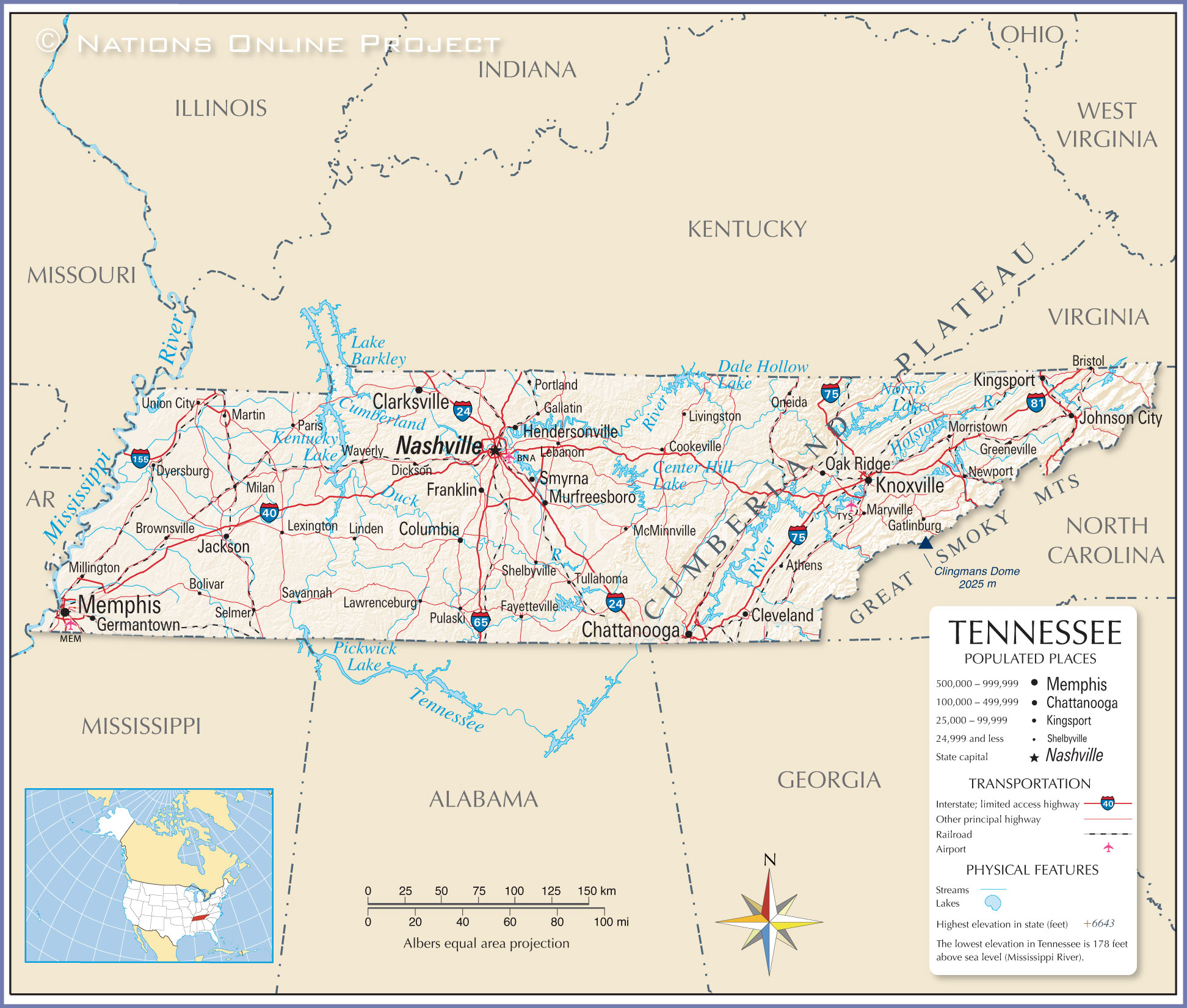
Tennessee, known as the "Volunteer State," is a tapestry of diverse landscapes, vibrant cities, and rich cultural heritage. Its geographic position in the southeastern United States, nestled between the Appalachian Mountains and the Mississippi River, has shaped its history, economy, and identity. Understanding the state’s geography, particularly its cities, is crucial for appreciating its complexity and the interconnectedness of its communities.
A Geographic Overview
Tennessee is divided into three distinct physiographic regions: the Appalachian Plateau, the Cumberland Plateau, and the Mississippi Alluvial Plain. The Appalachian Plateau, covering the eastern portion of the state, is characterized by rolling hills, forested valleys, and the Great Smoky Mountains, a majestic mountain range that forms the state’s eastern border. The Cumberland Plateau, in the central region, is a rugged plateau with deep gorges and sandstone cliffs. The Mississippi Alluvial Plain, situated in the western part of the state, is a fertile, flat plain bordering the Mississippi River.
Major Cities: Hubs of Culture and Commerce
Tennessee boasts a diverse array of cities, each with its unique character and contributions to the state’s identity.
-
Nashville: The state capital and a thriving metropolis, Nashville is renowned as the "Music City" for its rich musical heritage, particularly in country, bluegrass, and gospel music. It is home to the iconic Grand Ole Opry, the Country Music Hall of Fame, and numerous recording studios. Beyond its musical legacy, Nashville is a center for healthcare, education, and technology, making it a dynamic and growing city.
-
Memphis: Situated on the Mississippi River, Memphis is a vibrant city with a rich history and cultural significance. Its influence in blues music is undeniable, with legendary musicians like B.B. King and Elvis Presley leaving an indelible mark on the city. Memphis is also a major transportation hub, a significant center for healthcare, and home to the world-renowned Memphis Zoo.
-
Knoxville: Located in the foothills of the Great Smoky Mountains, Knoxville is a bustling city with a strong connection to nature. It is home to the University of Tennessee, a major research institution, and is known for its vibrant arts scene and its proximity to the Great Smoky Mountains National Park, a popular tourist destination.
-
Chattanooga: Situated in the southeastern part of the state, Chattanooga is a city undergoing a renaissance, embracing its natural beauty and industrial heritage. It is known for its scenic views, its thriving outdoor recreation scene, and its growing technology sector.
-
Jackson: Situated in the western part of the state, Jackson is a regional center for agriculture and healthcare. It is known for its strong community spirit and its connection to the Mississippi River.
Understanding the Interconnectedness
The cities of Tennessee are not isolated entities but are interconnected through a complex web of relationships. These connections are evident in the state’s transportation infrastructure, economic networks, and cultural exchange.
-
Transportation: Tennessee’s network of highways, railroads, and airports connects its cities, facilitating trade, travel, and communication. Major interstate highways like I-40, I-75, and I-81 traverse the state, connecting its major cities to other parts of the country.
-
Economic Ties: The cities of Tennessee are economically interdependent, with industries and businesses operating across the state. For example, Nashville’s music industry influences Memphis’s cultural scene, while Knoxville’s research institutions contribute to the state’s overall economic growth.
-
Cultural Exchange: Tennessee’s cities share a common cultural heritage, rooted in the state’s history and traditions. The state’s vibrant arts scene, its diverse cuisine, and its love for music are shared across its cities, creating a sense of shared identity and cultural exchange.
The Importance of Understanding Tennessee’s Cities
Understanding the geography and the interconnectedness of Tennessee’s cities is crucial for several reasons:
-
Economic Development: A thorough understanding of the state’s cities allows for informed economic development strategies, fostering growth and prosperity across the state.
-
Infrastructure Planning: Understanding the flow of goods, people, and information across the state informs effective infrastructure planning, ensuring the efficient and sustainable development of transportation networks, utilities, and other essential services.
-
Cultural Preservation: Recognizing the unique character of each city fosters appreciation for the state’s diverse cultural heritage, encouraging its preservation and celebration.
-
Tourism and Recreation: Understanding the geography and attractions of Tennessee’s cities allows for effective tourism development, promoting the state’s natural beauty, cultural offerings, and recreational opportunities.
FAQs about Tennessee’s Cities
Q: What are the largest cities in Tennessee?
A: The largest cities in Tennessee by population are Nashville, Memphis, Knoxville, Chattanooga, and Clarksville.
Q: What are the most popular tourist destinations in Tennessee?
A: Popular tourist destinations in Tennessee include the Great Smoky Mountains National Park, Dollywood, the Grand Ole Opry, Graceland, and the Tennessee Aquarium.
Q: What are the major industries in Tennessee?
A: Major industries in Tennessee include healthcare, manufacturing, tourism, agriculture, and music.
Q: What are some interesting facts about Tennessee?
A: Tennessee is known as the "Volunteer State" due to its citizens’ willingness to volunteer for service, particularly during the War of 1812. The state is also home to the world’s largest collection of Civil War artifacts, located at the Tennessee State Museum.
Tips for Exploring Tennessee’s Cities
- Plan your itinerary: Consider the interests of your group and research the attractions, events, and activities available in each city.
- Explore local neighborhoods: Venture beyond the tourist hotspots to discover hidden gems and experience the authentic character of each city.
- Embrace the local cuisine: Sample the diverse flavors of Tennessee, from Southern comfort food to barbecue to regional specialties.
- Engage with the local culture: Attend music events, visit museums, and interact with the friendly people of Tennessee to gain a deeper understanding of the state’s culture.
Conclusion
Tennessee’s cities are not just geographical points on a map but vibrant centers of culture, commerce, and history. Understanding their unique characteristics, their interconnectedness, and their contributions to the state’s identity is essential for appreciating the richness and diversity of the Volunteer State. Whether exploring its musical heritage in Nashville, its blues legacy in Memphis, or its natural beauty in Knoxville and Chattanooga, a journey through Tennessee’s cities is a journey through the heart of its history, culture, and spirit.
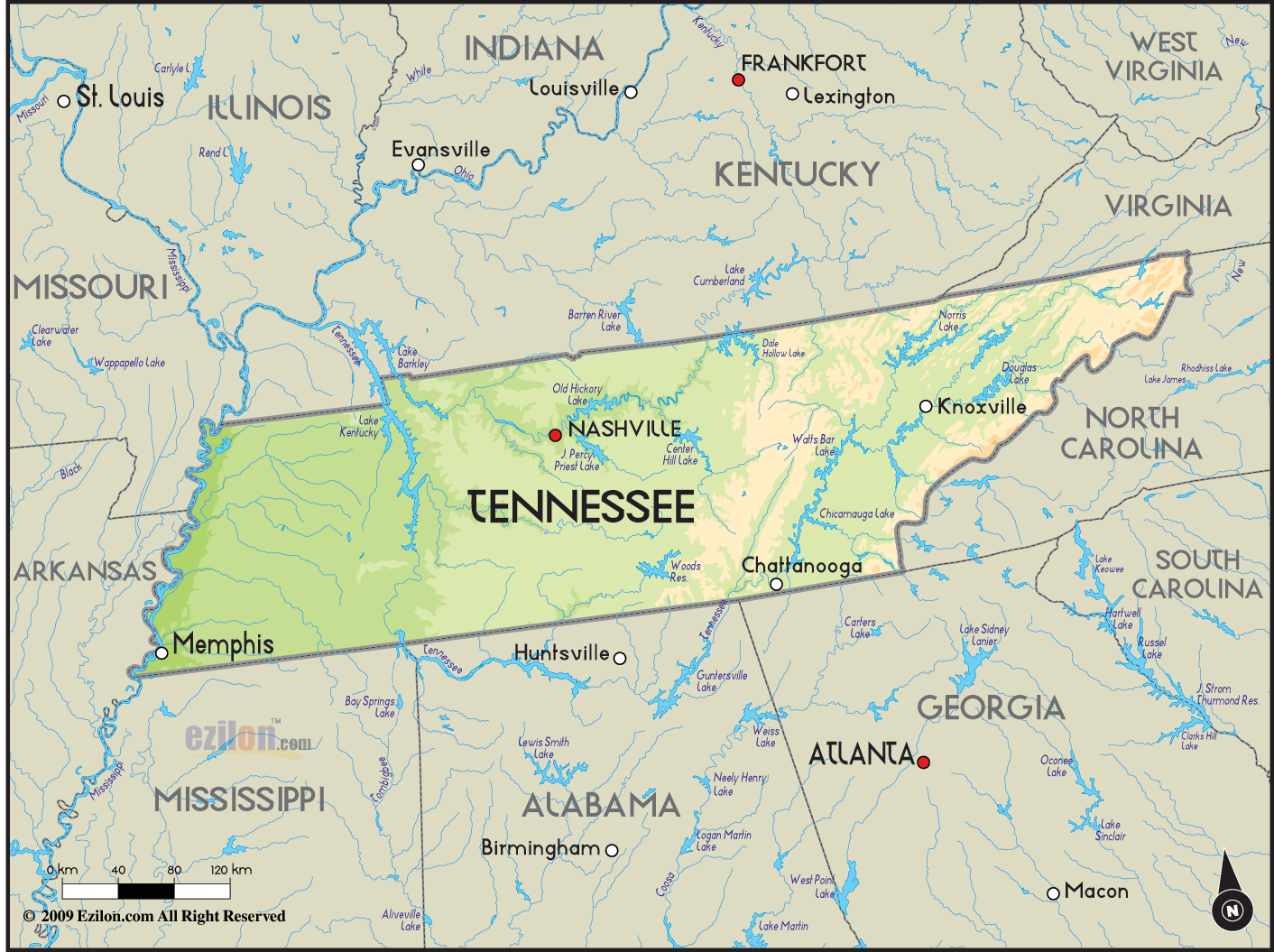
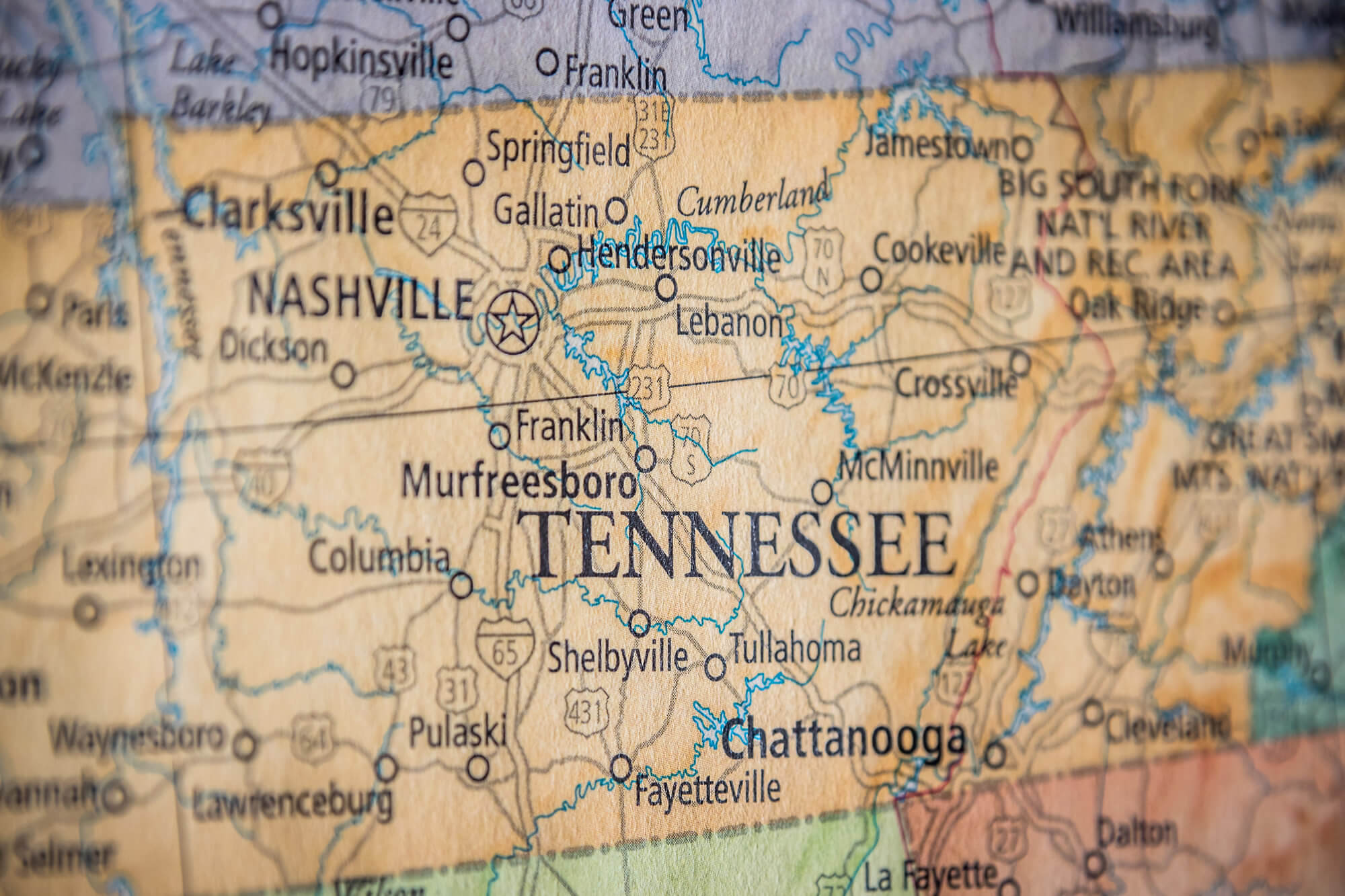
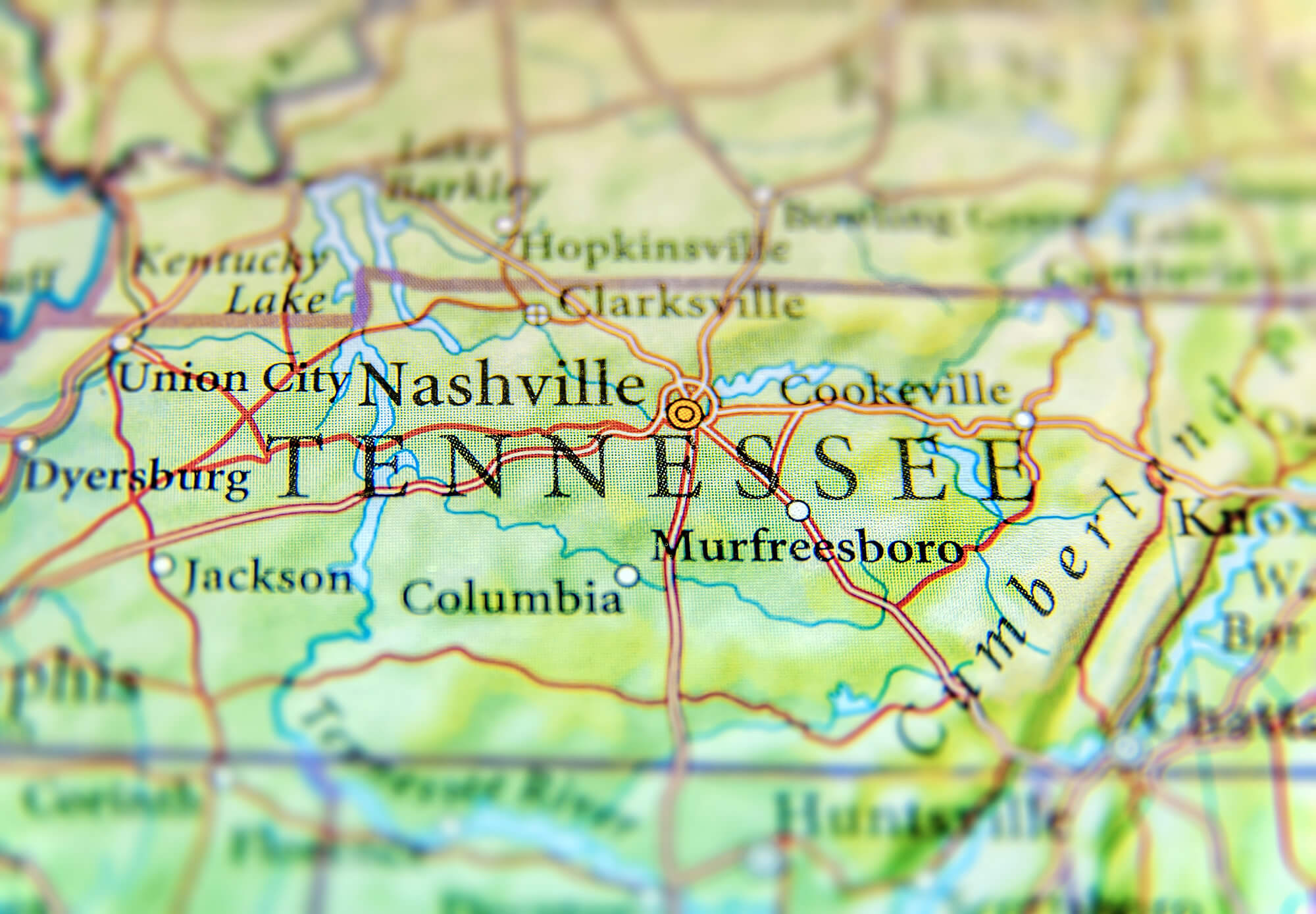
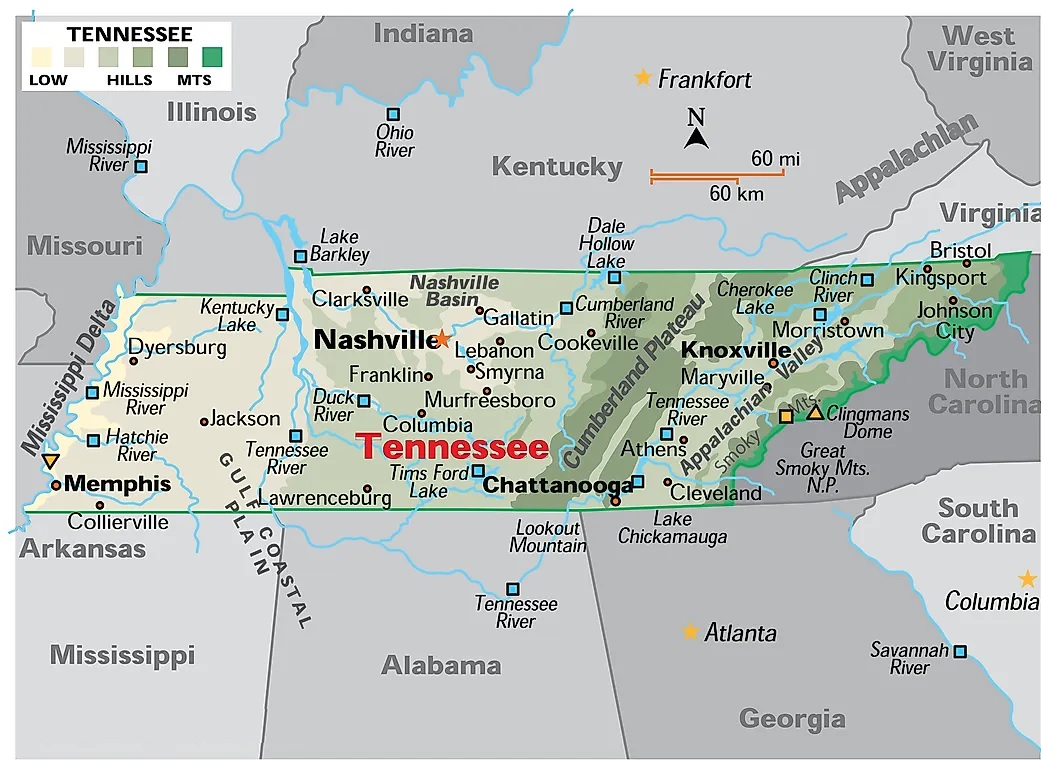

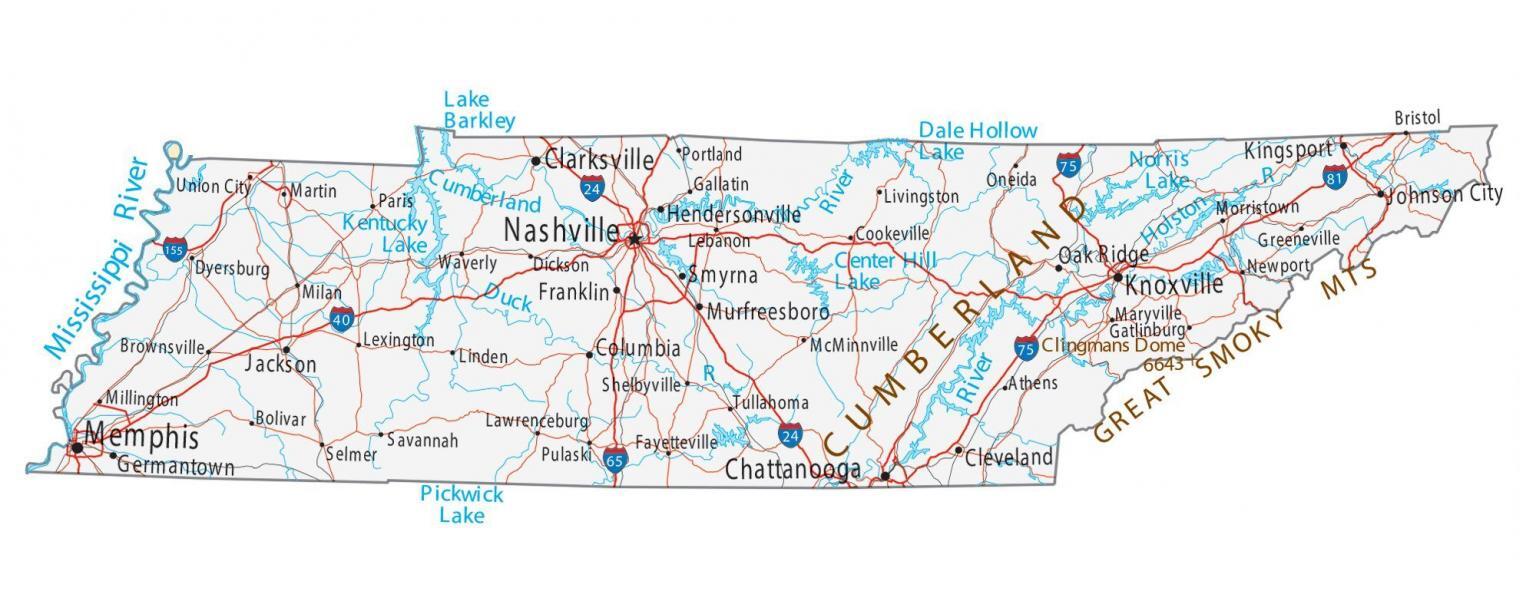

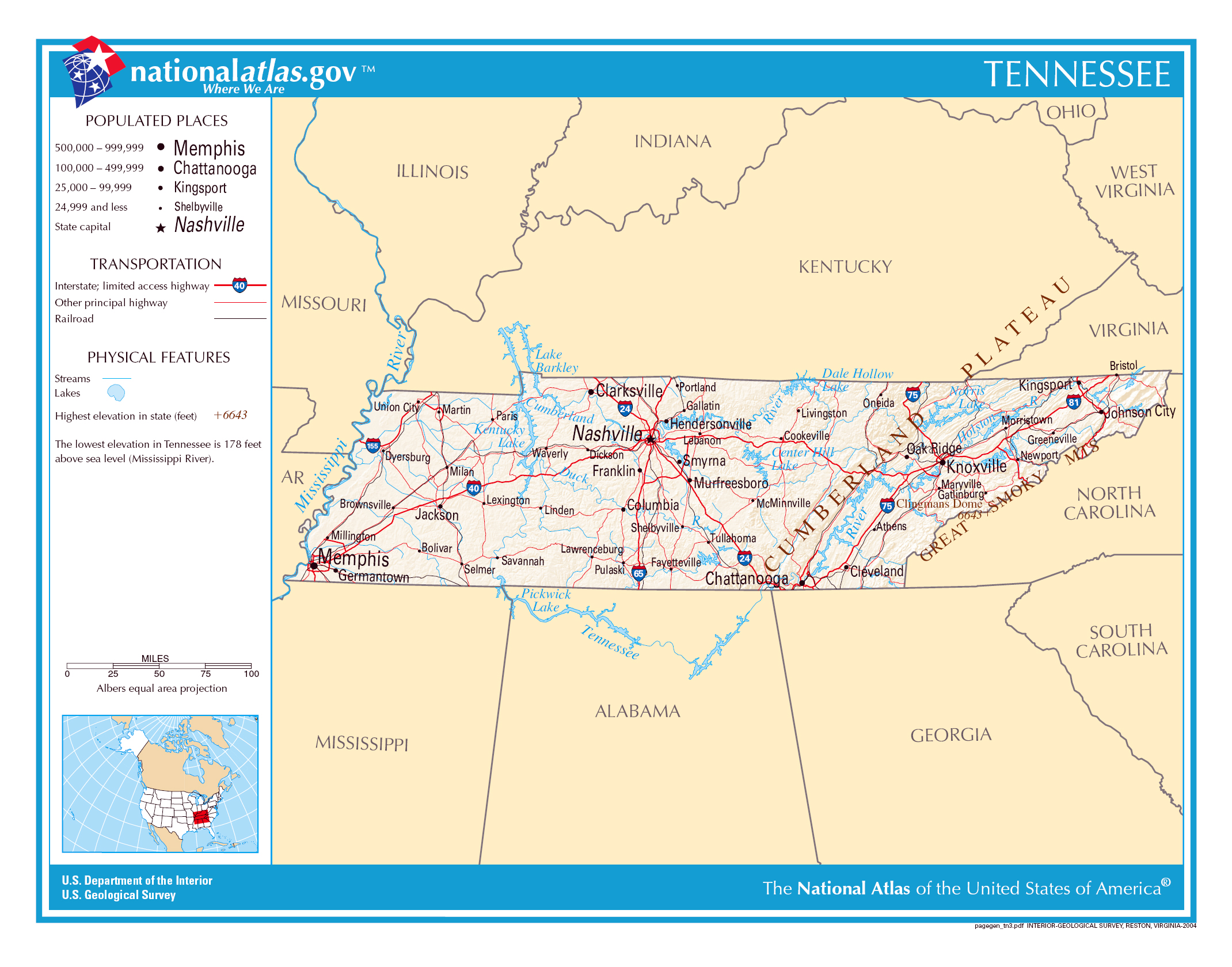
Closure
Thus, we hope this article has provided valuable insights into Navigating Tennessee: A Comprehensive Look at the State’s Cities and Geography. We thank you for taking the time to read this article. See you in our next article!